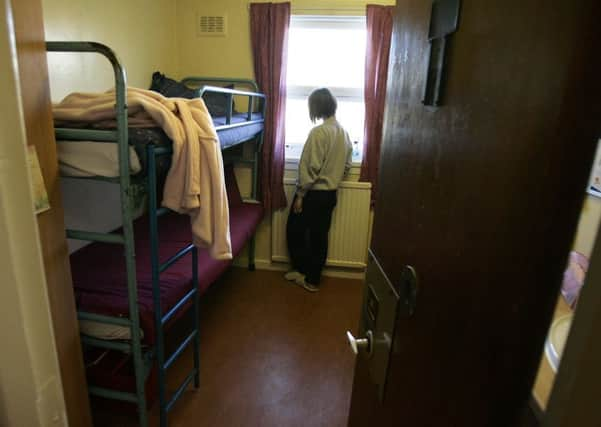Comment: Time to treat women differently in prisons


In 1993, the then home secretary Michael Howard proclaimed “prison works”. We are a long way from 1993. Knowledge, understanding and policy have moved on. And, with a stop being put on this huge expansion of the women’s estate, we have a real opportunity to rethink what we do with women in the criminal justice system.
The opportunity here is to do something better, to think differently and that needs to start with something as basic as language. We call women in prison, or women on a community payback order “offenders”. Why choose this label? A label that, if we think about it, applies to most of us. Have you ever driven above the speed limit? That’s an offence, no matter if you were caught and prosecuted for it or not.
Advertisement
Hide AdAdvertisement
Hide AdIf we take the label away, if we think of “women offenders” as women or simply just people, that’s a good place to start. It allows us to rethink and refocus what our reaction should be when people do something wrong. We no longer focus on just the “offence” we focus on the whole person. When we think of women as offenders, we think of them in terms of punishing them for their crime. If we think of women who commit a crime as people first and foremost, we can focus on doing the things we know reduce re-offending and change their behaviour.
Isn’t that what we really want? People to stop offending. We know that most women who go to prison go for a short time for low-level offences end up back in prison, usually within two years. Labelling them as “offenders” and locking them up doesn’t work. Building a super-prison, was never the way to stop offending. It is an easier, short-term answer, but not the effective one.
The right answer is to look at women in the criminal justice system and see not offenders, but individual, troubled women: women who have almost always had disastrous experiences. The women who were the children our society failed to protect, are now seen as the offenders solely responsible for the damage they do.
U-turning on the women’s prison wasn’t an easy decision, but it was the right one. Equally, turning your life around is hard, but supporting women in the criminal justice system to do this is the right thing to do
• Alistair Gaw is president of Social Work Scotland